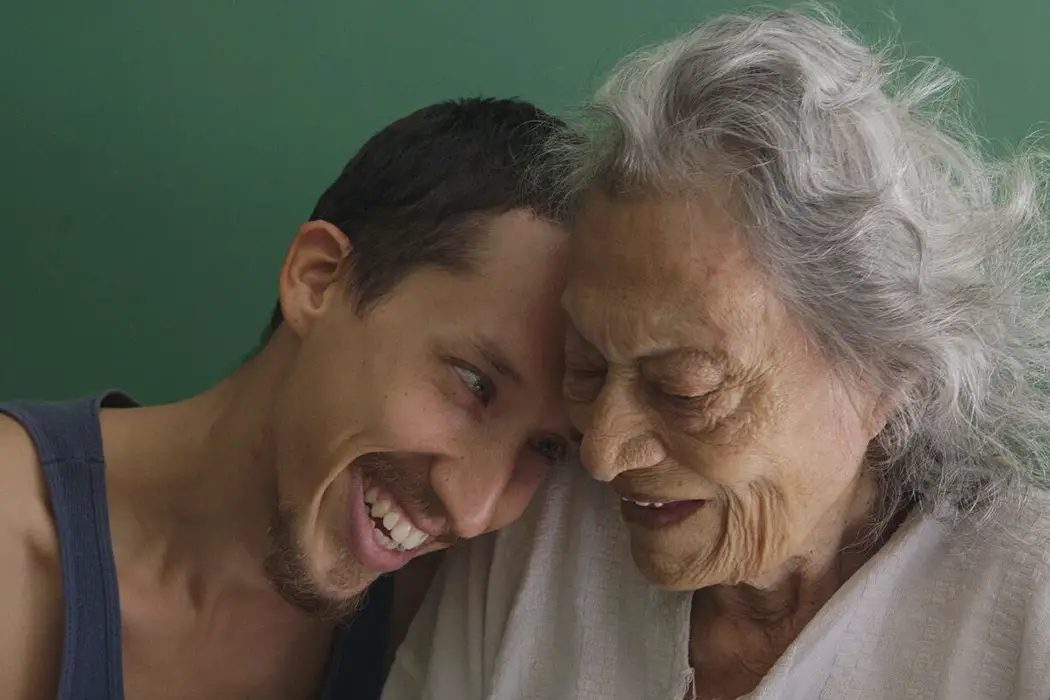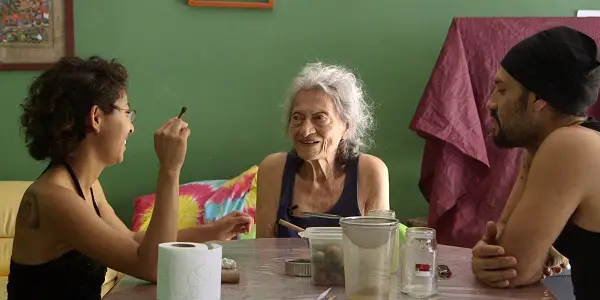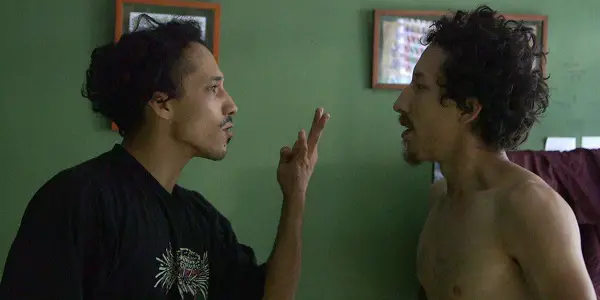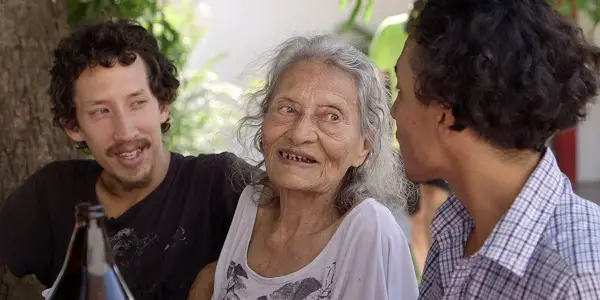AMÉRICA: Love In The Time Of Dementia

Musanna Ahmed is a freelance film critic writing for Film…
América was screened at the ReelAbilities Film Festival, the United States’ largest festival promoting awareness and appreciation of the lives, stories, and artistic expressions of people with different abilities. New York is host to the biggest edition of the festival, and April’s programme showcased a wide-ranging selection of films by and about people with disabilities from across the world.
ReelAbilities is part of the long festival circuit that América has travelled over the past years and continues to travel. We should commend the vast range of festival programmers for presenting this documentary, because distributors really ought to snap up this beautifully universal film (except for – unsurprisingly – the brilliant Dogwoof, who released it in UK cinemas in February).
“For our mothers”
Explicitly dedicated to all our mothers and implicitly dedicated to all our mothers’ children, América documents the struggle between growing up versus growing old through the touching story of a group of siblings brought together to care for their ailing ninety-three year old grandmother, whose name the movie is titled after.

América’s story is tragic: she had a bad fall, screamed out for help for her son Luis, who normally looks after her but wasn’t there (a key detail that remains a mystery), so the neighbours rushed for her to receive medical and even police attention. Now, Luis is facing trial for ‘abusing a senior citizen’. This is the impetus for grandson Diego to join his brother Rodrigo and sister Cristina to look after their grandmother.
A positive aura in the family home
It’s quite sad hearing them refer to her as América rather than grandma; clearly because of dementia, always asking if she knows who they are when they meet her. On the other hand, it’s heartwarming to see that, despite not remembering their names very well, she knows that they’re her blood. Pointing to the camera, she asks Diego why the filmmakers are recording everything they do and say. He says ‘because you’re a star”. She says “…startled!”

Despite her failing memory, there’s evidently a positive aura in this family home, as she approaches all of the people around her with love even when they’re anxious (such as worrying about needing to leave her side for any period of time). Rather, the difficulties lie in-between the brothers who clash due to the moral dilemmas regarding care for her and her will to live, which Diego deems “denying her consciousness” to the pessimistic Rodrigo.
A film about Diego as much as his grandmother
The third brother, Bruno, enters the picture. A circus worker, he returns home with his girlfriend without issue. For years, the siblings didn’t get along very well, but this scenario has brought them together as a team. Diego seems to be the one holding them all together, filled with hope for América’s wellbeing under their care. It can be extrapolated that the documentary may have been due to his agreement – possibly even his idea – as he serves as the primary contributor on screen as well as via narration and we learn a good amount about his personal life too.

It’s often hard to tell with observational docs if there’s some underlying pressure for the subjects to need to prove themselves on camera, a sort of enablement for Diego to spend a lot of time with América, but only a cynical reading of this genuine, loving connection between the two would be that he’s paying special attention because of a camera. The filmmakers neatly avoid the potential of exploitation or interference with the verisimilitude by only observing América when one of her grandchildren is present.
América: Conclusion
América is an empathetic, heartening documentary, painfully true in its depiction of the hardships arising from family members caring for an elder who’s losing her grip on their and her own identity, leading them to wrestle with the level of care required from themselves versus external forces.
Writer Joel Mayward wrote in a recent Indiewire’s Critics Poll, for 21st century movie villains, that dementia is the most tragic and terrifying villain in contemporary cinema, citing films such as Away from Her and Still Alice. América is another powerful example of this, with a focus on how a strong familyhood, playfulness and love can be the emotional Kryptonite of this awful disease.
What are the most powerful films about dementia? Let us know in the comments below.
América was screened at ReelAbilities New York from April 4-7 2019. To see dates of upcoming screenings around the world, head to the film’s website here.
Does content like this matter to you?
Become a Member and support film journalism. Unlock access to all of Film Inquiry`s great articles. Join a community of like-minded readers who are passionate about cinema - get access to our private members Network, give back to independent filmmakers, and more.
Musanna Ahmed is a freelance film critic writing for Film Inquiry, The Movie Waffler and The Upcoming. His taste in film knows no boundaries.













